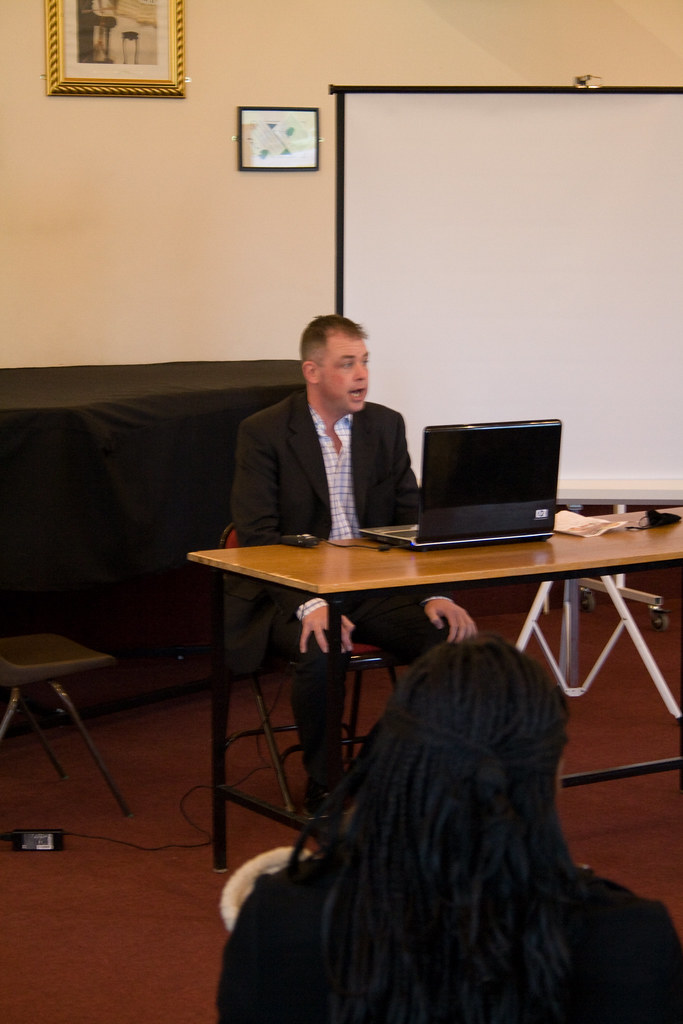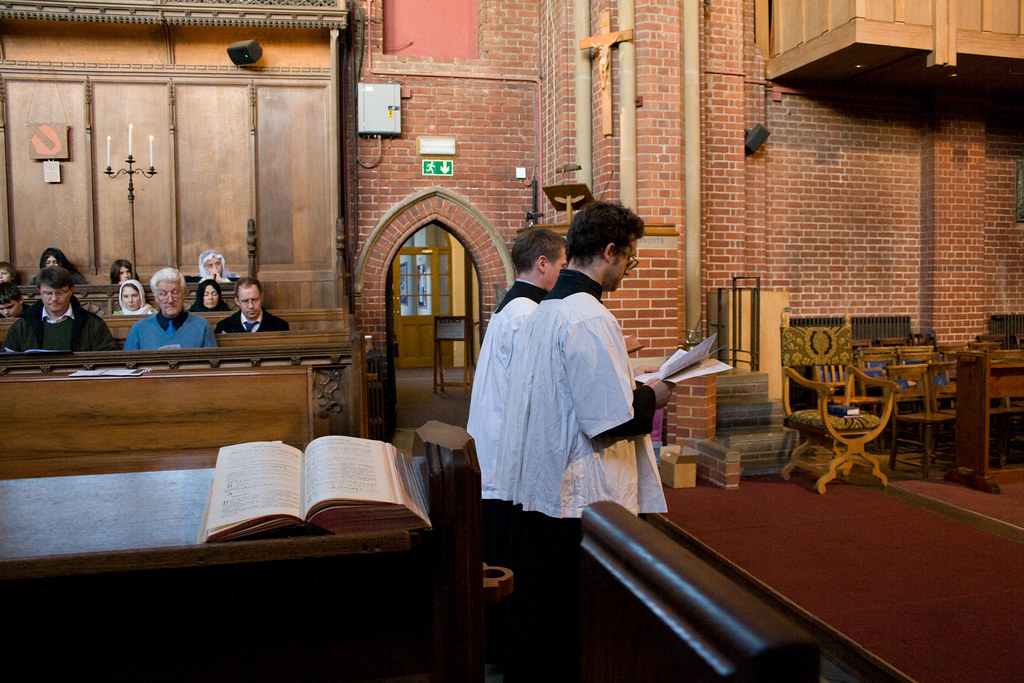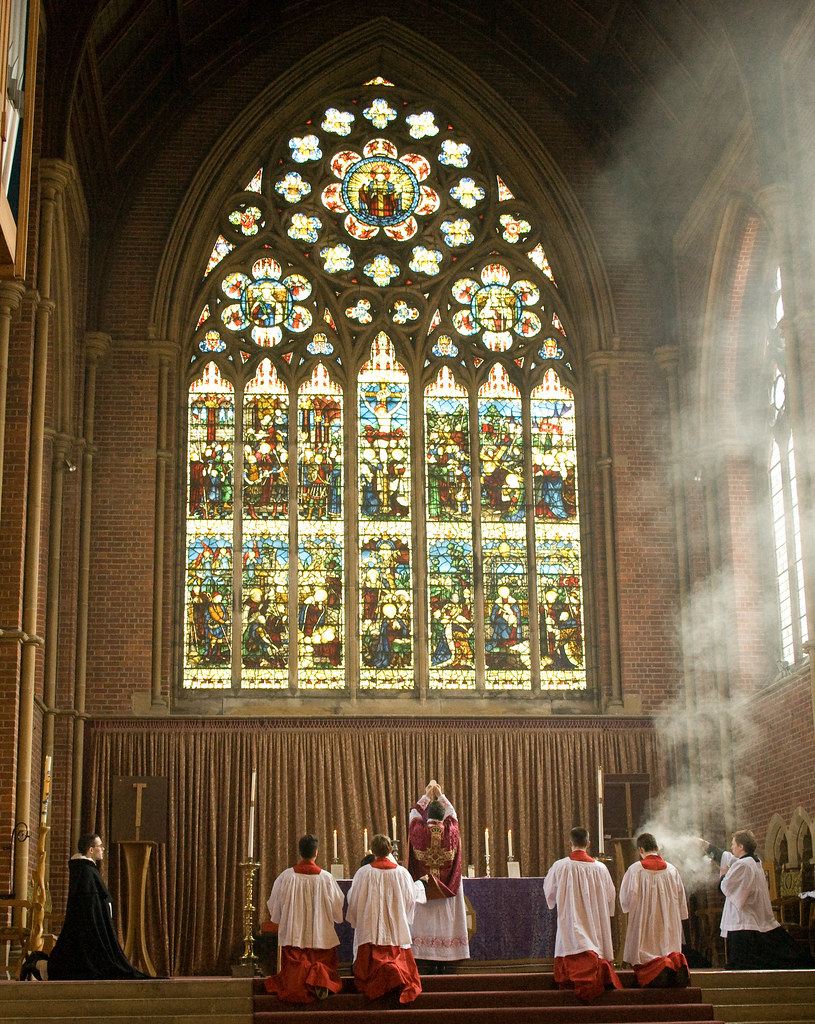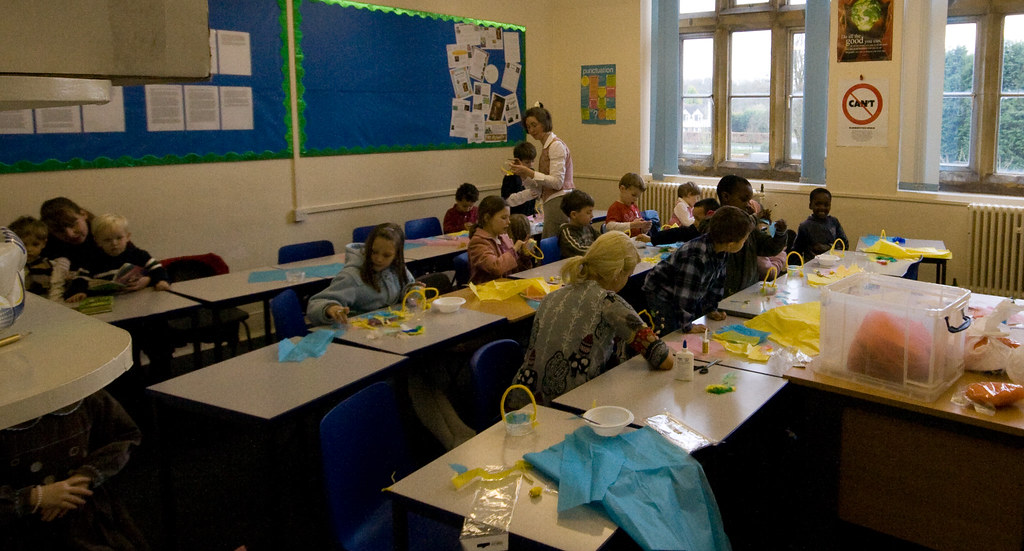
I have always invited singers to come to the Retreat, since there is quite a bit of singing to be done: three Sung Masses, two Complines, and Vespers and Benediction; we also sing the Stabat Mater during Stations of the Cross. To rehearse all this requires a good deal of time. I thought it made sense to make a virtue of necessity and bring in a professional chant teacher and establish a formal Chant Course, to run alongside the Retreat and provide the singing for it. Mr Nick Gale, Director of Music at St George's Cathedral in Southwark, and Head of Academic Music at the London Oratory School, very kindly volunteered to direct the course. Mr Charles Finch came to play the organ for most the Retreat as well, which was especially useful during the offices.

Our chant course was by no means a plog through the set propers, however. Nick was trained at Solemses in France, the international centre of Gregorian Chant, where he imbibed the latest scholarship on the chant books. The dozen singers who attended the course were all people with experience singing the chant, in many cases very long experience indeed, but Nick was able to give us all something we had never had elsewhere, which is an introduction to the Graduale Triplex.
 The Triplex includes, side by side with the ordinary chant notes, the strange-looking marks written to guide singers in the 10th and 11th Centuries. These marks don't give the melody, but tell us how the melody should be sung: essentially, the tempo and dynamics. They are the basis of the editorial marks made in the 'Solemses editions' of the chant books which started to appear in the 1920s, and include the standard books used by singers singing the chant today (such as the Liber Usualis and Graduale Romanum). These editorial marks, the 'dots' and horizontal lines, tell you where to lengthen notes, and by how much. But scholarship has moved on since the 1920s, and looking at the Triplex one can see that these markings are at best a very crude approximation of what the original books said; at worst they are completely wrong. Nick was able to show us how some consistent misinterpretations leads singers to place the emphasis in precisely the wrong place in the melody, on the note before the 'dominant' note, for example, instead of on the dominant note itself.
The Triplex includes, side by side with the ordinary chant notes, the strange-looking marks written to guide singers in the 10th and 11th Centuries. These marks don't give the melody, but tell us how the melody should be sung: essentially, the tempo and dynamics. They are the basis of the editorial marks made in the 'Solemses editions' of the chant books which started to appear in the 1920s, and include the standard books used by singers singing the chant today (such as the Liber Usualis and Graduale Romanum). These editorial marks, the 'dots' and horizontal lines, tell you where to lengthen notes, and by how much. But scholarship has moved on since the 1920s, and looking at the Triplex one can see that these markings are at best a very crude approximation of what the original books said; at worst they are completely wrong. Nick was able to show us how some consistent misinterpretations leads singers to place the emphasis in precisely the wrong place in the melody, on the note before the 'dominant' note, for example, instead of on the dominant note itself.
Furthermore, these markings encourage the idea that the chant score can be understood, like modern music, in a 'metrical' way, in which each note has a fixed length, which is doubled by a dot after it and so on. The great feature of melismatic chant, however, is that it respects the liturgical texts to such a degree that the natural emphasis and phrasing of the Latin can be reflected in the singing. Not only does this mean that we can stress the vowels which should be stressed, but we needn't lengthen short vowels and shorten long ones in accordance with a metrical straightjacket. This comes out particularly clearly in psalmody.
Having this explained and demonstrated was a revelation. We all know, of course, that the whole point of chant, particularly of psalmody, is that it is possible to set lines of text of unevan lengths to music, and that the text is not swamped or distorted by the music. Using the Triplex, however, this principle comes into play as never before.

Ardingly Chapel is well suited to the office, since it has benches facing each other. At Vespers and Compline we had the 'ceremonies', meaning that two cantors, one from each side, join each other in the middle to sing the first line of each psalm; they also sing back and forth with the priest leading the office at certain points. At Vespers Fr Southwell was sitting in the santurary, and here are the cantors addressing him.
Here are a couple of videos. In the first we are singing the Introit of Passion Sunday, Judica me (the video has the repeated verse). I can't claim we were singing it particularly well - we were a rather large and disparate group with a very limted time together - but you can hear the difference. The relentless speed takes a bit of getting used to. Singing this in the 'old Solesmes' style we would be pausing the melody in a number of places.
The second video is the end of Compline, which includes the canticle Nunc Dimittis and the concluding prayers. The presiding priest is of course Fr Andrew Southwell.








